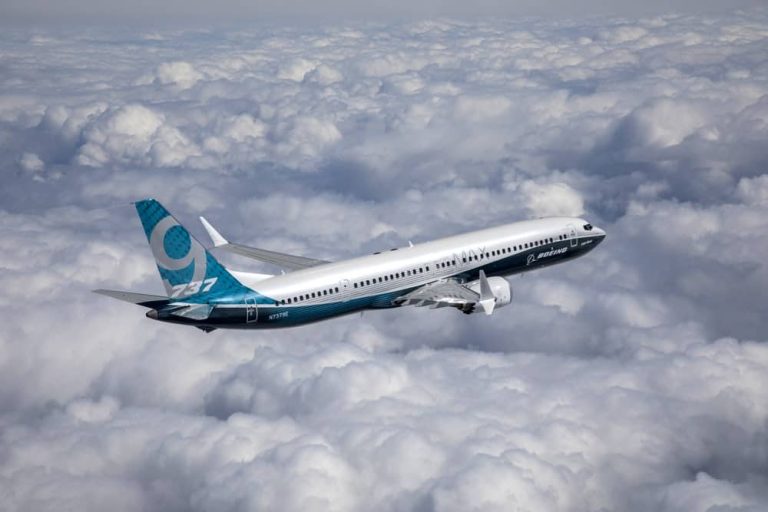The Federal Aviation Administration (FAA) unveiled a conditional pathway for the resumption of Boeing 737 Max 9 flights, with a critical restriction barring Boeing from expanding production of its Max jets, including the 737-9 Max model.
This directive stems from a recent incident in which a section of an Alaska Airlines flight was compromised, prompting the FAA to institute temporary groundings and initiate a comprehensive inspection.
Alaska Airlines took proactive measures by grounding its entire fleet of 65 Boeing 737 Max 9 aircraft following the fuselage breach incident. Under the FAA order, Boeing must undergo an exhaustive inspection and maintenance process for the 171 grounded Boeing 737-9 Max planes.
Successful completion of this process is a prerequisite for the aircraft to be considered eligible for service return. The FAA’s decision is informed by a meticulous review of data obtained from inspections conducted on 40 grounded planes.
- The approved inspection and maintenance procedures encompass a comprehensive evaluation of exit door plugs and associated components, bolts, and guide tracks, and the rectification of any identified damage.
- FAA Administrator Mike Whitaker emphasized that the thorough review does not signify a return to “business as usual for Boeing.”
- Concurrently, the National Transportation Safety Board is actively investigating the incident, focusing on determining whether the door panel that dislodged from the Alaska Airlines flight was adequately bolted before takeoff.
- Despite locating the plane’s plug door, the investigative team is yet to recover the associated bolts.
In response to this incident, the FAA issued a recommendation for airlines to inspect door plugs on Boeing 737-900ER aircraft, a different model. The agency underscored the identical design of the door plugs in the 737-900ER and the Max 9, urging airlines to scrutinize four specific points where bolts secure the door to the airframe of the 737-900ER.
Backstory
The airline’s mishap posed yet another challenge with its flagship model, previously grounded for almost two years following the 2018 and 2019 crashes. In a formal statement, Boeing reported that over 25% of the affected planes had undergone inspection, with a clean bill of health, prompting their service return.
Expressing solidarity with the Federal Aviation Administration’s (FAA) decision at the time to ground it before being granted resumption, Boeing underscored its collaboration with the ongoing National Transportation Safety Board investigation into the Alaska Airlines incident. The aerospace giant emphasized an unwavering commitment to safety, asserting that the well-being of passengers remains paramount.
Boeing acknowledged the regrettable impact of the recent event on both its customers and their passengers, reaffirming its dedication to addressing safety concerns transparently and responsibly. This development unfolds against the backdrop of Boeing’s strenuous efforts to overcome previous challenges and restore confidence in its best-selling model.

